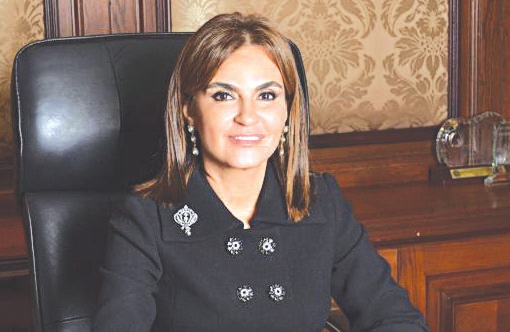Egypt may exceed its $10 billion target for foreign direct investment this year as the depreciated pound reduces the cost of conducting business in North Africa’s largest economy and a new investment law comes into force, the investment minister announced.
Sahar Nasr informed Bloomberg she had been approached by investors from Saudi Arabia, Singapore, China and the United Arab Emirates — including Al Ghurair Group -about potential investments. The pipeline for the fiscal year that began July 1 includes Oil and Gas, Real Estate, Tourism and Logistics Investments, she said in an interview in Cairo Monday. Nasr maintained that it was too early to comment on the size of potential deals. The Egyptian pound has halved in value against the U.S. dollar since the central bank removed most currency controls in November, to iron out a foreign currency shortage and secure a $12 billion loan from the International Monetary Fund.
The Egyptian government has also embarked on a structural reform programme that includes subsidy cuts and new taxes to control its ballooning budget deficit. “With the devaluation, the cost of labour – blue or white collar – is lower than elsewhere,” Nasr said, adding that even with recent reductions in fuel subsidies, the cost of energy in Egypt remains less than in neighbouring countries or other emerging economies. “Egypt sure has an edge.”
Egypt has been granted about USD 8.7 b, in foreign direct investment in the fiscal year ended June 30, Nasr said; an increase from USD 6.9 b a year earlier but below its USD10 b target. U.S. investors have also expressed an interest in doing deals, while companies that are already in Egypt, including Mars Inc. and General Electric Co., are planning to expand, she said.
President Abdel-Fattah El-Sisi ratified a new investment law this year aimed at cutting red tape, giving what Nasr called a “significant signal from the highest political level that, yes, Egypt is open for business.” Though the weaker currency has boosted investor confidence and attracted inflows, it has also helped drive inflation above 30 %, pressuring Egypt’s 93 m people, half of whom live near the poverty line – thus exerting a major challenge on El-Sisi’s government.
The Central Bank of Egypt has responded to rising inflation by increasing its benchmark interest rate by 7 percentage points since November, prompting some companies and economists to be wary of the increased cost of purchase plans which could deter investment and depress growth. Some business analysts have also cautioned against higher interest rates claiming they are unlikely to curb rising prices. High interest rates have not proven to be a major hurdle for investment, Nasr alleged, with companies focusing more on currency issues and bureaucracy alleviation. “We are also working full force to cut red tape,” she asserted. “In the Oil and Gas sector, currency convertibility was an issue, but now with the arrears issue being addressed, investment is picking up at a faster rate.”


